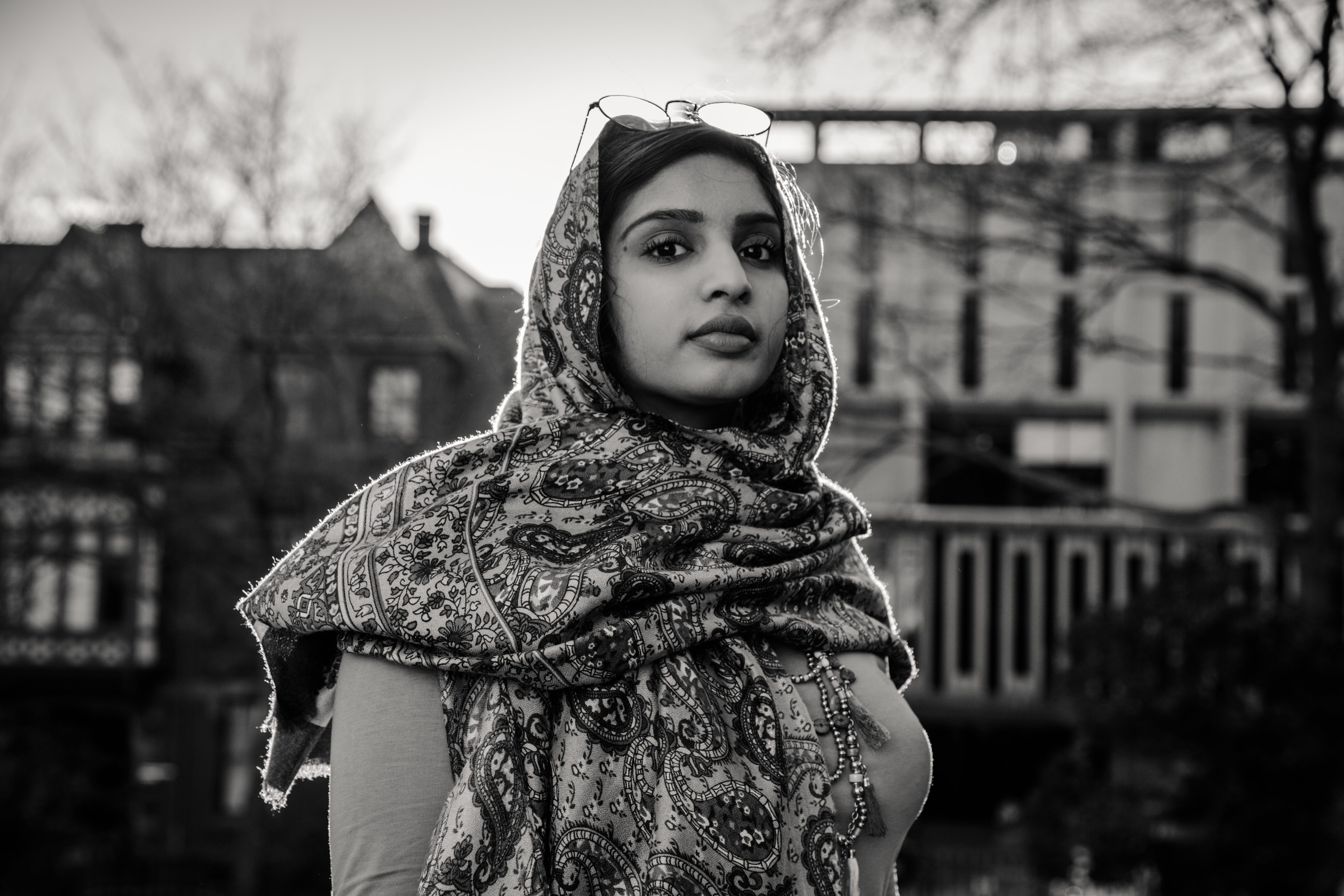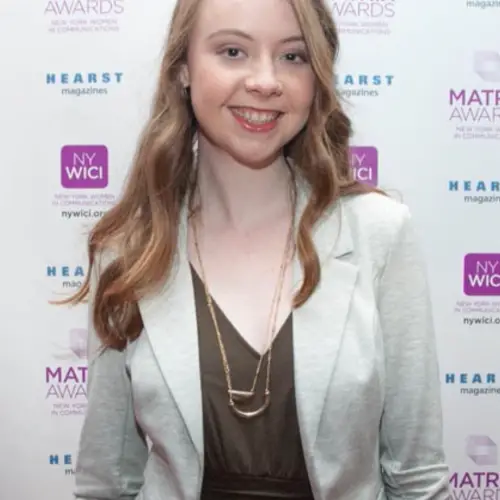“Chill. Zen. Tawakkul.” These three words compose Amara Majeed’s signature mantra. When her friends brood over small matters or when she herself encounters daunting obstacles, she invariably recites this poignant precept: “Chill. Zen. Tawakkul.” The last word comes from the Arabic language and means trusting in God’s plan — something Majeed has done and strives to do as a young woman of devout faith and unyielding conviction.
Islam endures as an immovable facet of Amara Majeed’s identity and daily life. From her birth in Towson, Maryland, as the daughter of Sri Lankan immigrants to her present endeavors at Brown University and beyond, Majeed’s status as a Muslim American and her intrinsic motivations molded a young woman on fire for sweeping change and impassioned advocacy.
With a hijab on her head and her heart on her sleeve, Majeed became a zealous champion of Muslim-American activism and an unshakeable mouthpiece for the marginalized.
At the ripe age of 16, Majeed assembled the Hijab Project, which encouraged women of any race, color or religion to wear a hijab for a day and document their experiences. Her work caught the eye of major media outlets – she appeared on “Good Morning America” and has been featured by household names, including Marie Claire Magazine, Business Insider and more.
She became an author in 2014 with the publication of her book, “The Foreigners.” BBC featured Majeed in its 2015 “100 Women” season, and Seventeen Magazine published an open letter she penned to Donald Trump after his ban on immigration from Muslim countries.
As a freshman at Brown, Majeed became inundated with press attention – and then took a conscious break from interviewing for a while. Until now.
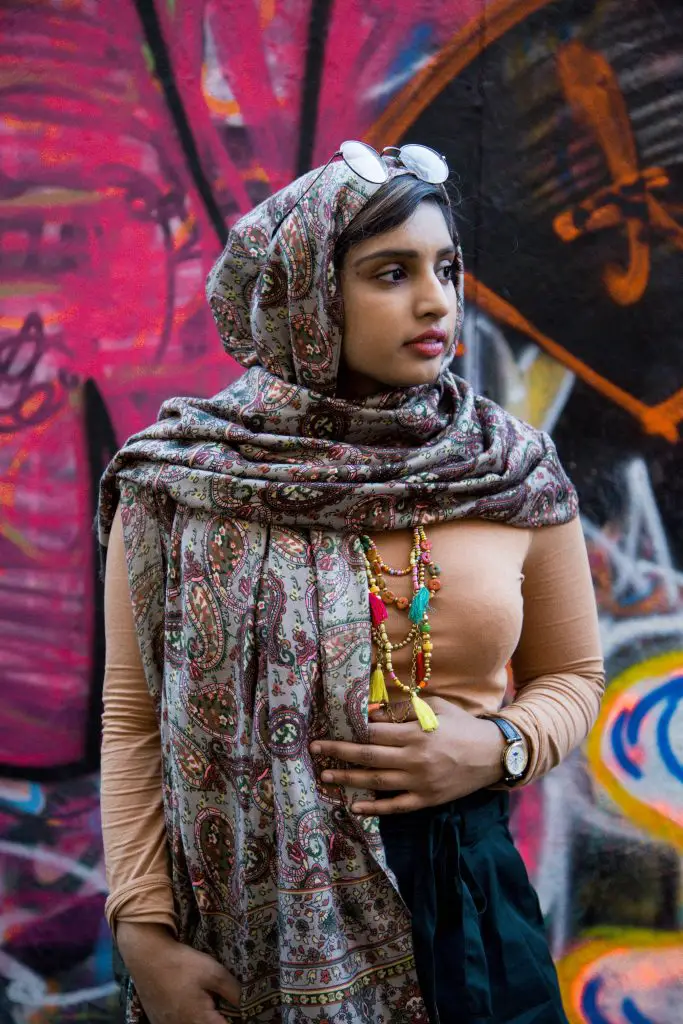
Today, Majeed is a junior with a rejuvenated agenda and a critical message to share, especially for college students. She’s evolved and matured, abandoned previous projects and pioneered new initiatives.
She’s speaking boldly in opposition to the Countering Violent Extremism movement and conveying her message to college campuses nationwide. She’s a fierce leader. She’s an influential spokesperson. She is President Trump’s worst nightmare. She is Amara Majeed.
Sarah Lynch: Since your last interview as a freshman, you’ve become heavily involved in the anti-Countering Violent Extremism movement. Talk to me about that. What steps have you specifically taken in contesting this program?
Amara Majeed: Countering Violent Extremism – it’s usually denotated as CVE – is this program that was created by the Obama administration in 2014. It’s extensively innocuous. It’s couched in lingo like “building community partnerships” and “developing community resilience,” and the lingo used in the program is really this stark contrast from Bush’s War on Terror lexicon.
But implementationally, it’s very violent and it works to criminalize Muslims – and specifically Muslim youth – and recently it’s been expanded. The Denver Police Department, in particular, has received a CVE grant from the Department of Homeland Security, and they’re using it to target not just Muslims but also refugees, Black Lives Matter activists and LGBTQ+ groups, and obviously as someone who has worked on anti-CVE work for a while, this is extremely troubling.
CVE has also proliferated to college campuses. Last year the University of North Carolina Chapel Hill accepted an $800,000 grant from DHS to propagate CVE at its university, which is extremely ironic considering not too long ago three Muslims were killed in the Chapel Hill area by a white man. For them to adopt this program that’s criminalizing Muslim students is really ludicrous.
The second case is actually at UIC – the University of Illinois at Chicago – and they’re using this kind of public health CVE model. I flew to Chicago last semester in the midst of finals period. It was super, super busy, but we were figuring out a game plan as to how we can tackle CVE at UIC, and also CVE in general.
I do a lot of national anti-CVE work, but recently I felt considering I’m graduating next year, it’s my last opportunity to really spearhead a movement against CVE on college campuses. After graduation, I’ll continue to do this work, but it’s not the same as a college student spearheading an anti-CVE campaign specifically for college campuses.
Basically, I created this letter that provides documentation of opposition to CVE, which I think is incredibly important because now university administrations, if they’re thinking of adopting a CVE program, can look at this document that’s signed by so many student groups and Muslim student associations and students and faculty members from across the nation and say, “Wow, there will be resistance if we implement this program,” and I hope that will stop them from doing it.
Also, recently the Brennan Center for Justice – this cutting-edge think-tank that does amazing anti-CVE work, and they’re really one of the groups at the forefront of it – decided to publish our letter as one of their anti-CVE resources, which is a really big deal. Now universities will have a very accessible documentation of people that have opposed the program.
At the moment, I’m working with other Muslim students to really spearhead this, and I’m also working with a Muslim advocacy organization, called MPower Change, which is helping us really promulgate this campaign nationwide.
It’s really amazing because this CVE is really just a manifestation of surveillance that has been used as a tool to subvert the power of people of color and marginalized groups historically in the United States. It’s really something that I feel is so intersectional and so many marginalized groups in this country really should coalesce around this and oppose this incredibly violent program.
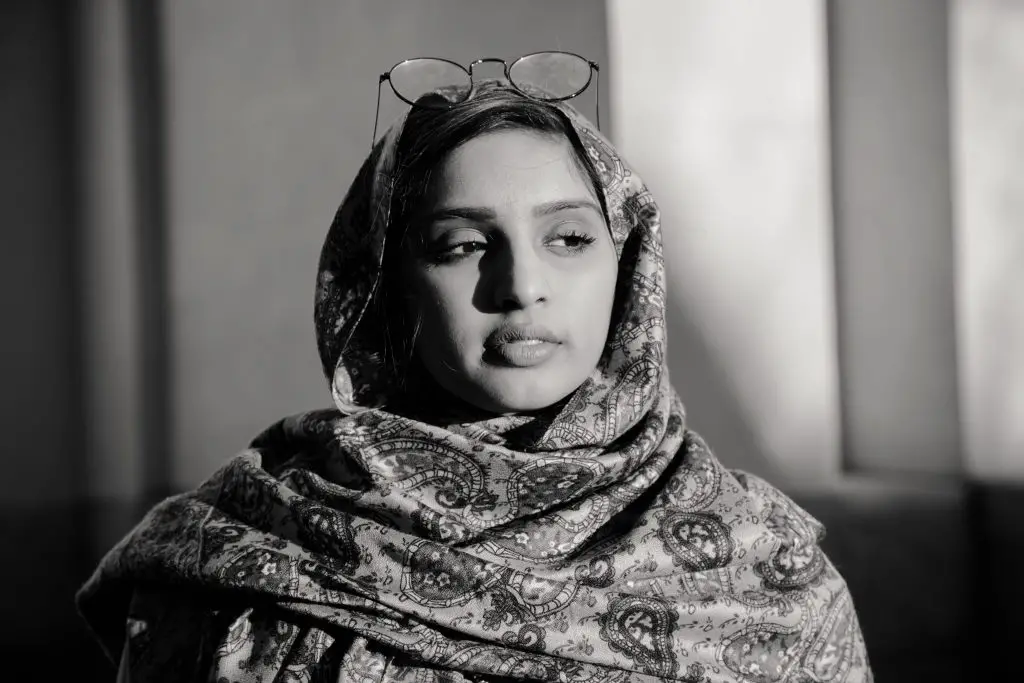
SL: As a student activist yourself, how do you hope other college students will rise up and help combat this problem? What can students do in their own college communities to bring attention to CVE?
AM: With this movement, we hope that we can really create a toolkit for college students to, first and foremost, educate themselves. I think education and eradicating ignorance is probably the first step to any given problem and really educating ourselves not just on a superficial level, but really taking the time to do proper research and talk to people about the given issue.
Then I think it’s really important that we show solidarity. That’s one of the main things that should come out of this movement because it’s expanded to target not just Muslims but black people and LGBTQ+ people and refugees, and this is something that we can all coalesce around.
We’re in the Trump administration at the end of the day. I remember when Trump first got elected; obviously, I was extremely depressed, much like many of my peers and young college students around me. But then I started to realize, I’m a person of faith.
I’m a Muslim, and I’m a practicing Muslim. I think for me, I started to think about why God would have wanted this to happen, and why he would have willed for someone who is incredibly divisive and incredibly violent to be elected as president of the United States. As I thought about it more, I started to think that maybe something good can come of this, and the one good thing I could think of is coalition building across marginalized communities.
We have to support each other. We have to support each other’s causes, and not just in a performative way. We have to support it sincerely, and not out of a desire to co-opt but genuine solidarity and empathy for each other’s struggles.
SL: Have you been able to work in conjunction with other national organizations or groups in your community to help combat this problem?
AM: Over the summer, I worked with Professor Khaled Beydoun. He’s a pretty famous, prominent professor that does a lot of work and research on Islamophobia. I was incredibly lucky to get the opportunity to be his research assistant, and specifically, we were looking at the ways in which the U.S. government has exploited sectarian tensions between Sunnis and Shias to advance the CVE agenda.
It was interesting because I got to further delve into the way the government has specifically exploited Sufism to promote this agenda, which is definitely very fascinating to me and very elucidating.
I also worked at the American Arab Anti-Discrimination Committee where I did a lot of CVE mapping – which was kind of like public educational work – and looking at where exactly programs are sprouting in communities. I also attended all of the Senate hearings on CVE and then subsequently wrote statements to these Senate committees.
Specifically, I was pushing for more authentic Muslim voices to be a part of these hearings on CVE rather than Muslims who have publicly denounced Islam and Muslims, and who are actually co-opted by Islamophobes to perpetrate Islamophobic agendas.
Another thing I did was I worked with the Montgomery County Civil Rights Coalition to do this anti-CVE work. I think it was probably one of the most rewarding experiences I’ve had so far because I got to do more grassroots community outreach work, going to local mosques and talking to Muslim youth about why this program is horrible, why we can’t stand for it, why we can’t just sit down and be apologetic Muslims and why we have to stand up for our rights and refused to be surveilled in this horribly dehumanizing way.
SL: How do you balance being a college student at an Ivy League school like Brown and also pursue this work at a national level?
AM: I think for me, I’m incredibly blessed because I think I just have so much love in my life. I actually never thought that it was possible to have this much love and happiness in my life, and I’m very much surrounded by people that nourish me – they nourish me emotionally, spiritually.
I think activism can be very emotionally draining. It can be hard. It gets to the point where sometimes you don’t really see the light at the end tunnel. Sometimes, I don’t even really feel like I’m the right person to do the job because I feel like I can be overly emotionally invested in certain things. It gets to the point when its bad for me, and it’s sometimes counteractive to what I’m trying to do.
Self-care is really important obviously, and it’s something that a lot of times as college students we forget. I’m very lucky to have had so many great friends and family just always be there for me and be my emotional outlet in that way.
SL: So I wanted to switch gears for a second and talk about feminism. You’re a self-proclaimed feminist. Has the current feminist inspired you or influenced any work that you’ve done?
AM: I think feminism means something different to each woman, and I really think that we have to, in many ways, liberate ourselves from deeply entrenched notions of white feminism that are existent in the way we, ourselves, conceptualize feminism. As far as feminism for me, as a person who wears the hijab, for example, I don’t necessarily wear it purely for religious purposes.
For me, it’s like Algerian women during their struggle for independence from the French. They wore the hijab as a symbol of this idea that the French may be able to colonize their land but they could never colonize their minds, and they could never take away their culture and their religious identity. It’s an anti-colonial symbol in that way.
Also, Iranian women under Pahlavi – they wore the hijab also as a symbol of resistance and protest to the Western imperialist-backed regime. For me, when I wear the hijab, it’s a conscious effort to remember and it’s emblematic of this incredibly important resistance, anti-colonial, anti-Western-imperialism movements.
That’s what it means to me, and oftentimes I feel like the brand of feminism that we have come to understand as feminism is white-washed in a sense and devoid of these incredibly important aspects of women’s struggles that Muslim women and other women of color hold sacred.
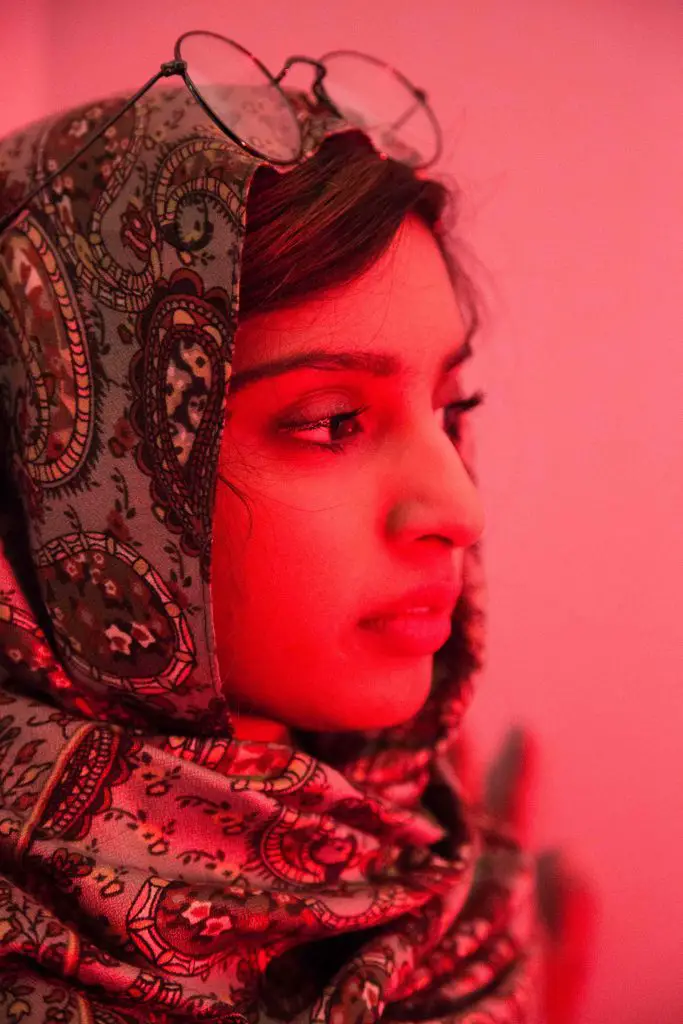
SL: I wanted to touch on the Hijab Project. How has that project evolved since you were last interviewed?
AM: Over the years, I think it’s safe to say that I have matured a lot, and with maturity comes a sense of self-awareness and self-criticism. I think that in a lot of ways I’ve come to realize that I don’t agree with the Hijab Project and I don’t really support its initial ambition.
I guess it might be kind of weird to say because it’s something that I absolutely believed in when I was younger and it was something I absolutely put all of my heart and soul into. I absolutely think that it’s contributed so much to the person that I am today and for that I am grateful.
To be honest, I think in a lot of ways I don’t find it to be useful. I don’t think that a white woman that puts on the hijab for a day really knows what it’s like in any capacity to be a Muslim woman, especially a Muslim woman of color or a black Muslim that wears the hijab on a regular day and faces systematized violence.
There are so many ways to learn about Islam and there are so many ways to learn about Muslim women. And the most important way to learn about Muslim women is to talk to Muslim women – to engage with them and, perhaps even more importantly, to read their published works. Read Saba Mahmood, a very famous Muslim feminist. Read Leila Ahmed’s biography. We have to read and learn about Muslim women before, quite frankly, appropriating their form of dress.
SL: As students, we are constantly learning and taking in a lot of perspectives and ideas. We’re constantly looking up to people. Who do you consider to be your role models, and who has inspired you along your journey?
AM: Someone that’s really inspired me is actually a person who is very prominent in Islamic history. Her name is Khadijah, and she was actually the prophet Muhammad’s wife. For me, when I think about someone who’s strong and who’s brave and someone that’s, more than anything, resilient and loyal, she is someone that I think of. A lot of times when I feel like I’m at lows in my life, I want to channel her energy.
SL: As junior, that means college is coming to an end for you before too long. As a pre-law major, where do you hope your studies will take you and what do you hope will be your ideal job?
AM: It’s funny, I’m actually not pre-law anymore. Whenever people meet me, they always ask me this and I’m like, “Yeah, it’s been a while since that ‘Good Morning America’ interview published that.” I actually decided not to pursue pre-law. Especially after Trump got elected, I completely lost my resolve in law just because I felt like I wanted to be on the grounds in Washington, D.C. right after graduation, fighting this administration.
I didn’t feel like I could afford the time, or really the money, of course, to go to law school and spend three years of my life there. Honestly, I think working in D.C. every summer and doing Muslim advocacy work, I really just saw the value in that and how much work there is to be done, and how much I want to contribute to the advancement of Muslim Americans in our society.
I don’t really like to plan things out so much, and I don’t really have an image of something exactly what I want to do upon graduation because life can take you in so many different directions. I don’t think it’s good to plan things out to the core because at the end of the day our plans can go awry in a minute.
I think it’s good to go with it and see where it takes you. I think for me, it will probably be in the realm of Muslim advocacy. I’m really excited to continue that work after I graduate.
SL: What words of encouragement do you have for Muslim students in America right now who feel ashamed when they’re walking around school wearing their hijab, who feel unsafe on the streets at night or who feel marginalized? What words of encouragement keep you positive and motivated when you feel that way, and what would you want to share with them?
AM: Be strong and be unapologetic in every aspect of who you are because the way the system works, it’s made to make us feel ashamed and scared and surveilled and threatened. And if you feel that way, it’s working – the system is working. We really do have to fight this system and we have to fight this administration and we need strong and brave and loyal and resilient people that are at the forefront of this movement for that to happen.
One of the things that have repeated most often in the Islamic tradition – something that’s an important concept to recognize as Muslims – is that the world around us is temporary. We have to root everything that we do in something that is transcendental, which is God.
We have to root everything that we do in something that is kind of otherworldly. That concept gives me a sense of strength and it makes me feel like if everything is temporary, then that means that I can get through anything, and everything will pass.


